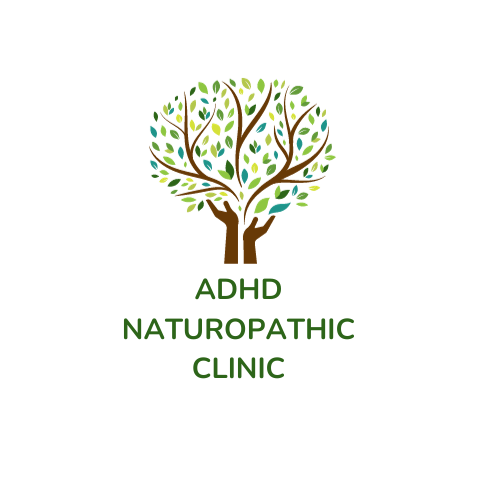ADHD - How we can help
Understanding ADHD
Attention Deficit Hyperactivity Disorder (ADHD) is a complex neurobehavioral condition characterized by consistent patterns of inattention, hyperactivity, and impulsivity, which are not appropriate for a child's developmental level. At our clinic in Perth, we specialize in treating ADHD and other neurological disorders using natural methods.
ADHD is the most commonly diagnosed behavioral disorder in children and is more prevalent in boys than girls. Approximately 30-50% of children diagnosed with ADHD continue to exhibit symptoms into adulthood.
Subtypes of ADHD
- Hyperactive-Impulsive
- Inattentive
- Combined Hyperactive-Inattentive
Causes of ADHD
ADHD likely involves a combination of genetic and environmental factors affecting brain development before and after birth. Brain imaging studies suggest that children with ADHD have differences in brain function, particularly in dopamine pathways, leading to reduced dopamine levels due to rapid reabsorption.
Genetic variations, such as those in the COMT pathway and MTHFR gene mutations, can make individuals more susceptible to ADHD and mood disorders.
Risk Factors for ADHD
- Family history of ADHD
- Higher prevalence in boys (2-4 times more common)
- Food sensitivities, particularly to sugar, gluten, casein, and food additives (e.g., artificial colors, preservatives, MSG)
- Poor diet (high sugar and refined carbohydrates, low protein, low essential fatty acids, low fruits and vegetables)
- Maternal stress, substance use during pregnancy
- Premature birth or oxygen deprivation at birth
- Heavy metal exposure (e.g., lead)
- Chemical exposure (e.g., pesticides)
- Hypoglycemia
- Family dysfunction, neglect, abuse
- Overstimulation from electronic devices
Signs and Symptoms of ADHD
-
Inattentive Symptoms:
- Difficulty focusing and easily distracted
- Forgetfulness and frequently losing items
- Not listening when spoken to
- Not following through on instructions or tasks
- Difficulty organizing tasks
- Avoiding tasks requiring sustained mental effort
- Daydreaming
-
Hyperactive Symptoms:
- Fidgeting and squirming
- Leaving seat when expected to remain seated
- Running or climbing in inappropriate situations
- Difficulty playing quietly
- Being constantly "on the go" or talking excessively
-
Impulsivity Symptoms:
- Blurring out answers
- Difficulty waiting for one's turn
- Interrupting or intruding on others
Natural Treatment Strategy for ADHD
Identify and Address Underlying Factors:
- Food sensitivities: Remove sugar, gluten, casein, and food additives
- Balance neurotransmitter
- Regulate MTHFR and COMT biochemical pathways
- Investigate and address gut dysbiosis and intestinal permeability
- Manage hypoglycemia
- Detoxify heavy metals
- Correct nutritional deficiencies (e.g., EFAs, iron, zinc, B-vitamins, magnesium, vitamin D)
- Improve family dynamics
Support Brain Function:
- Enhance dopamine pathways
- Calm the sympathetic nervous system
Diet Plan Guidelines for ADHD
- Elimination Diet: Identify food sensitivities, particularly to gluten, casein, food additives, and salicylates.
- Avoid Additives: Exclude artificial colors, preservatives, and sweeteners. Some children may improve on an additive-free diet.
- Avoid Sugars and Processed Foods: Minimize refined carbohydrates and stimulants like caffeine.
- Increase Omega-3 Intake: Consume oily fish, nuts, and seeds.
- Whole Foods Diet: Emphasize fresh fruits, vegetables, grass-fed meats, and nutrient-dense foods.
Supplements for ADHD Support
- Omega-3 Fatty Acids: Support brain function; children with ADHD often have lower levels of certain EFAs.
- Active B-Complex: Support neurological function, particularly in individuals with MTHFR polymorphisms.
- Magnesium: Calm the nervous system.
- Phosphatidylserine: Combined with omega-3s, it may help manage symptoms.
- Iron, Folate, B12, Zinc, and Vitamin D: Assess and supplement if deficient.
- Detoxification: Use glutathione, alpha-lipoic acid, selenium, and N-acetyl cysteine for heavy metal toxicity.
Herbal Medicine for ADHD
- Cognition-Enhancing Herbs: Bacopa, ginkgo, gotu kola, Korean ginseng, French maritime pine bark.
- Relaxing Nervines: Passionflower, lemon balm, chamomile, oats, Rhodiola.
- Adaptogens: Withania, Siberian ginseng.
- Blood Sugar Balancers: Fenugreek, American Ginseng.
Lifestyle and Physical Measures
- Physical Exercise: Vital for managing ADHD symptoms.
- Limit Electronic Stimulation: Reduce time spent on electronic devices.
- Nature Time: Encourage outdoor activities.
- Counseling and Hypnotherapy: Support emotional and behavioral health.
- Meditation and Relaxation: Use CDs and techniques for children.
Natural Approach to ADHD
ADHD requires a comprehensive approach to uncover the unique factors contributing to each individual’s experience. At ADHD Naturopathic Clinic, we combine natural therapies, comprehensive testing, and personalized ADHD coaching to address challenges such as poor dopamine pathways, gut health, detoxification, methylation imbalances, diet, and heavy metal toxicity. Our ADHD coaching provides practical tools and strategies to manage symptoms and improve daily functioning for both children and adults.
If you or a family member are struggling with ADHD or its symptoms, consider exploring our natural treatment options and ADHD coaching services. We work to address the root causes of ADHD, empowering patients to reduce or eliminate reliance on medication while building skills for long-term success. Contact us today to learn more about how we can support you or your loved one in managing ADHD naturally. Book online for an in-person or telehealth consultation and take the first step toward a personalized care plan.

